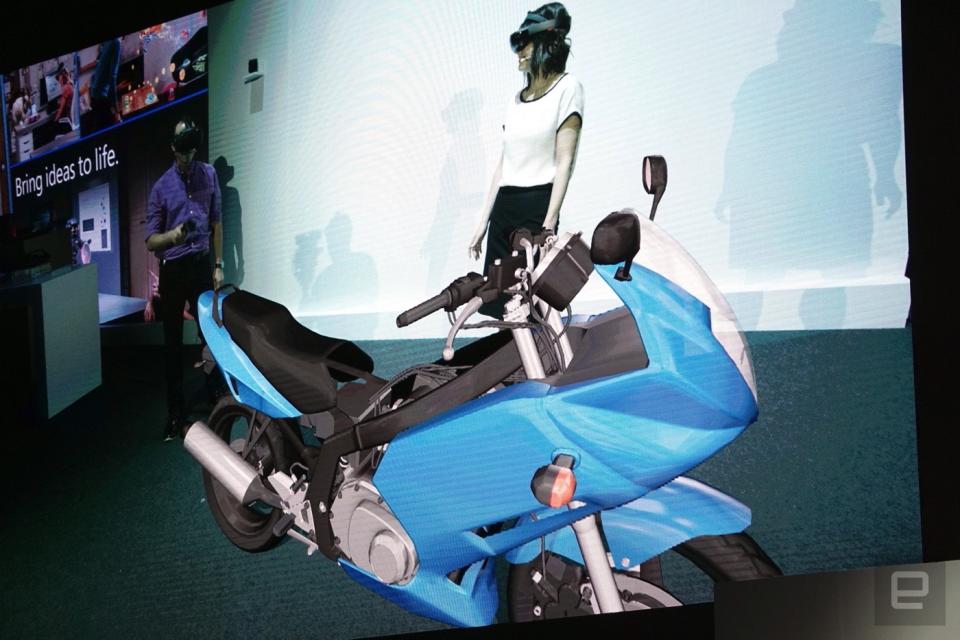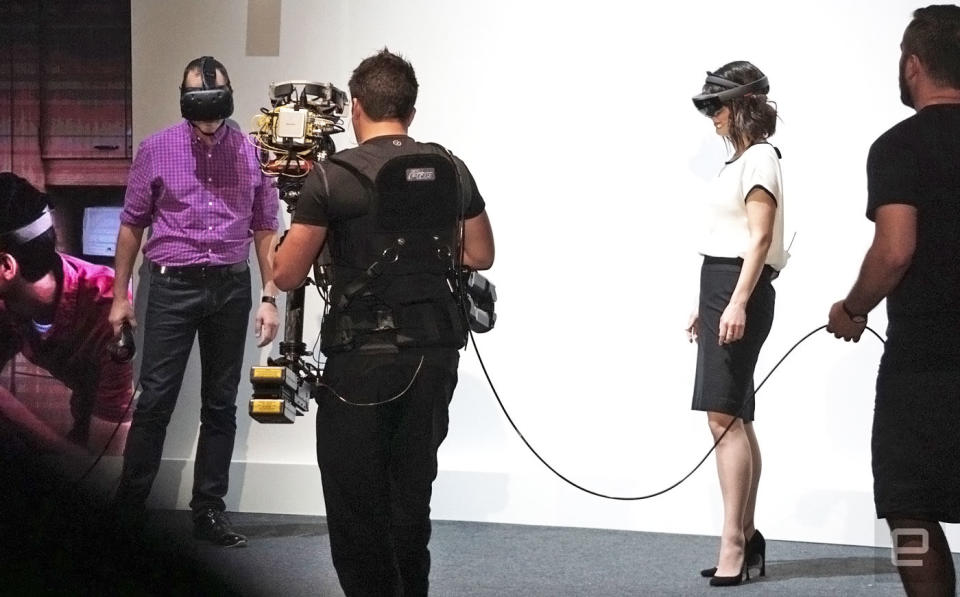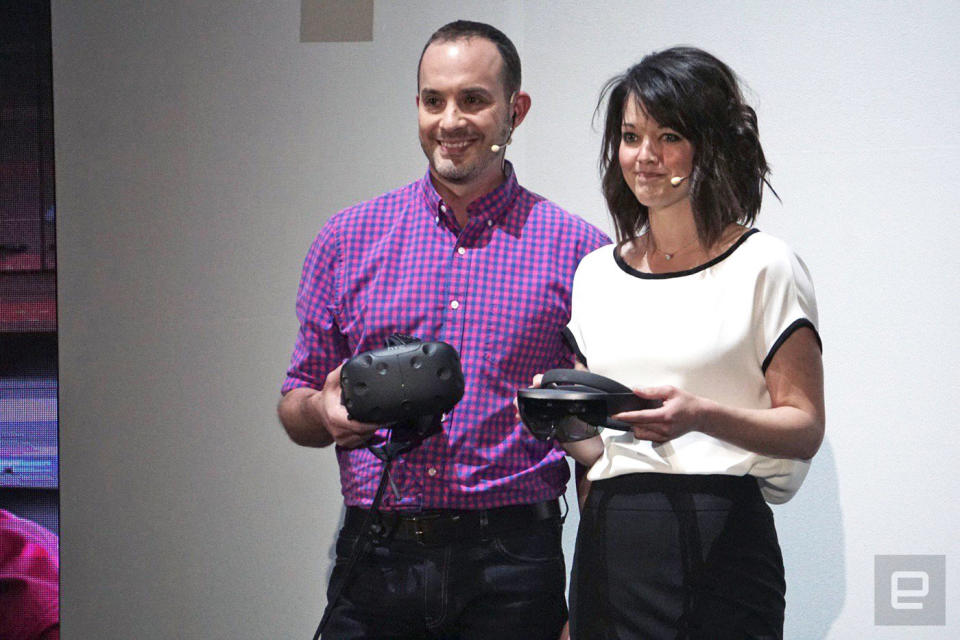Microsoft gets into VR by letting others build HoloLens gear
Microsoft is opening up Windows Holographic at the perfect time.

HoloLens will eventually get some siblings -- but most of them won't be coming from Microsoft. At Computex today, Microsoft announced that it's opening up the Windows Holographic platform to third parties, which they can use to build their own virtual and augmented reality devices. Yes, that's right: Windows Holographic won't just be about the AR experiences we've seen in HoloLens; it'll also power full-fledged VR hardware. Microsoft is calling this mixture of AR and VR "mixed reality."

The news isn't entirely surprising, as Microsoft has historically expanded its platforms with the help of other companies. Also, this shows the versatility of the HoloLens concept: Microsoft's current device makes for some cool demos, but it's not exactly meant for regular people just yet.
A consumer HoloLens "may come from us, or it may come from a partner, and either way that's fantastic," said Microsoft's Terry Myerson, executive vice president of its Windows and Devices Group. Myerson likens HoloLens to Microsoft's Surface -- a concept that will inspire other companies to create similar devices. The Surface had a rough start, but it's evolved into surprisingly compelling hardware, and now just about every PC maker is trying to get in on that action.

To give us a sense of what a world full of HoloLens devices could look like, Microsoft played a short video during its Computex keynote. It featured a young designer who used a HoloLens headset to design an event space virtually. Eventually, she reached out to colleagues remotely, one using an HTC Vive and another using a HoloLens headset of his own, to collaborate on the project in real time. All of them also had a friendly AI helper (which looks a lot like Cortana's cute Chinese version), who chatted with them in virtual space.
When I asked about how the HTC Vive was running HoloLens, Myerson said diplomatically that "we're working directly with HTC" on a product based on Windows Holographic. Myerson didn't have any details to share about further HoloLens updates, or when we'll see devices from third parties. Microsoft is also partnering with Intel, AMD, Qualcomm, Acer, ASUS, Dell, Falcon Northwest, HP, Lenovo, MSI and others on the Windows Holographic platform. We'll eventually end up seeing HoloLens accessories and other components from these companies, in addition to full-fledged headsets.

Stay on top of all the latest news from Computex 2016 right here.
